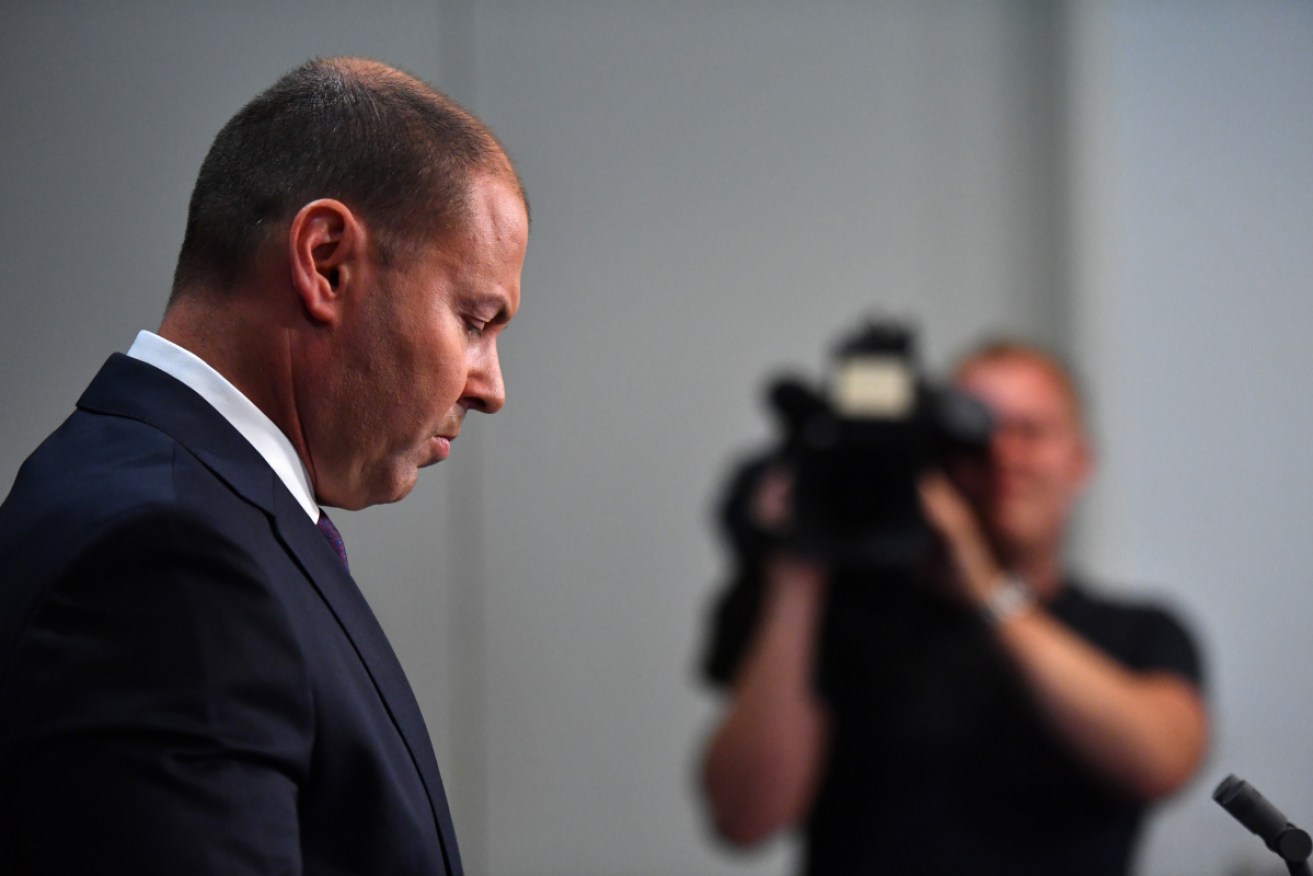Scott Morrison nowhere to be seen as royal commission findings handed down


All eyes will be on Treasurer Josh Frydenberg on Tuesday. Photo: AAP
Scott Morrison was noticeably absent from the press conference to announce his government’s response to the banking royal commission he never wanted to see happen, leaving his Treasurer solo to be thrown at the mercy of the Australian public.
But that will change on Tuesday, when the Prime Minister will front the media in Tasmania to respond to the inquiry.
As treasurer, Mr Morrison vowed to repel those calling for an inquiry, dismissing Bill Shorten’s demands as “a populist whinge”, “hot air” and a “stunt”.
By comparison, his successor in the role is comparatively a cleanskin, who was in a position to conduct a more credible attempt at outrage over the findings.
While Mr Morrison was visiting families affected by the bushfires in Tasmania, Mr Frydenberg was given the task of delivering the government’s response to the inquiry.
“My message to the financial sector is that misconduct must end and the interests of consumers must now come first. From today the sector must change, and change forever,” the Treasurer said.
Now the final report has been handed down, the Morrison government is pledging to “take action” on all 76 recommendations.
But note the careful formulation. The Treasurer is not pledging to enact all of the recommendations. He is pledging to take action on them.
That has opened the door for the Labor Party to prosecute not just the PM’s reluctance to call the inquiry, but also his response.
“On our initial reading of the government’s response, we are concerned that on too many issues, the government does not accept the royal commission’s recommendation, does not propose adequate action, or delays action,” Labor leader Bill Shorten said.
“The Liberals tried to stop this royal commission from happening. They cannot be allowed to go soft on the banks, or go slow on implementing the reforms.”
It’s true that while the government will adopt the bulk of the recommendations, there are some areas where it is proposing a more cautious approach.
For example, while the final report calls for borrowers to pay mortgage brokers directly – to clarify who the brokers are supposed to be working for – the Treasurer is proposing a more softly-softly approach.
“Let me make it clear we’re taking action on all 76 recommendations. With respect to mortgage there were essentially three main points. The first was to establish interest-free. Tick, we are doing that.
“The second was to end trailing commissions. Tick, we’re doing it.
“The third was to move to a model where the lender was lending effectively to the mortgage broker.
“The Productivity Commission and the Murray inquiry and the Sedgwick review warned against that, issuing a word of warning about what it would mean to competition. What we don’t want to do is a give a big tick or a free kick to the banks.
“Effectively, if you would take that business out of the hands of mortgage brokers who are strewn right across our community, you would be giving it to the big banks.
“Let me read to you what the Productivity Commission recently said of such a change if it were to take place: ‘The cost to competition would be high. Consumers would desert brokers. Smaller lenders and regional communities with few or no bank branches would suffer more than larger lenders’.”
Mr Shorten said the unconscionable, corrupt and potentially criminal behaviour in the banking sector uncovered in the report was further evidence that Mr Morrison should stand condemned for trying to stop the inquiry.
“This is a dark day for Australian banking, and a terrible indictment on the greed in the industry,” Mr Shorten said.
“We pay tribute to the victims of banking misconduct, the whistleblowers and the advocates for making this day happen.
“Mr Morrison called the royal commission ‘regrettable’, a ‘populist whinge’, delayed action for more than 600 days, and wants to give the big banks a $17 billion handout.”
For the Labor Party, the final report of the royal commission into the banking sector is a political victory.
It is also the gift that keeps on giving, with the prospect that regulators will lay charges during the election campaign.
It will be a nervous wait for some involved in the fees-for-no-services scandal, which the final report suggests penalties up to and including jailing banking executives.








